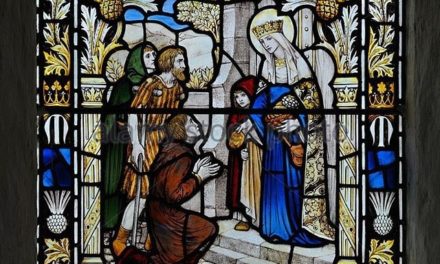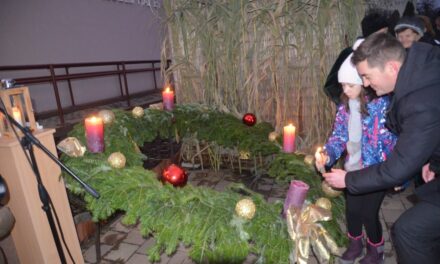The pastor's profession has become complex in the 21st century, it has moved from the level of a religious specialist to the direction of pastoral and administrative (cultural, economic, etc.) organizing activities. In many cases, the pastor is not only a priest, reverend, teacher, master builder, rural developer, folk expert, but also a cultural and community organizer in Transylvania - Róbert Bálint, a Unitarian pastor who serves at Mészkön in Aranyoszék, explained to Krónika , who is also a sociologist, and as such examines various aspects of the social perception of a profession.
Róbert Bálint, who serves at Mészkő in Aranyoszék, Cluj County, is both a Unitarian pastor and a sociologist. We asked Róbert Bálint why he considers it important to deal with this topic in his two capacities, both as a sociologist and as a pastor.
"It is difficult to separate the two "qualities". Let me start with a personal example. In one of the churches where I served, there was a great need for the presence of a pastor. Let me put it this way, it was usually characteristic of the members of this church that they opened up easily and shared their problems, fears or joys with their pastor.
Pastoring was therefore an important and natural part of the pastor's service. When I continued working in another church, I realized very quickly that there they primarily expected me to play a priestly-liturgical and community organizing role," answered Róbert Bálint to our question.
City and village churches are very different
As he pointed out, the cited situation is important from several points of view: on the one hand, it shows the tension in the image of the profession, and on the other hand, it highlights that neither the ministry nor the congregations can be dragged to the same tree. "Thirdly, it shows how the different social situation of certain communities can become an explanation for the difference that can be seen in the above act: the first mentioned was an urban scattered community in southern Transylvania, the other a traditional village community with strong family ties and a sense of local identity.

"The relationship between the congregation and the pastor is determined not so much by religious legitimacy or priestly status, but rather by behavior and the quality of the broader service" (Photo: Pap Zoltán / Krónika.ro)
For me, there is no question that as a pastor it is important to know the reasons why, to understand how they affect the service and opportunities.
The quality of a sociologist provides rather the "extras", the tools for a better understanding of these, so that I can approach the question at the level of social processes and look for guidelines and typologies," said Róbert Bálint. As a sociologist, the pastor historically reviewed the social status of the pastor/priest profession, which has changed many, many times throughout history. Since you discussed the topic in detail, we asked you to briefly summarize what the status of a priest/minister has become today.
More and more, personality matters, not status
"I feel that the pastor's profession is judged more and more by the pastor's personality and not so much by his status. Of course, there is a definition of status and there is an idea in people's minds about what it means to be a pastor, there are recognizable external and internal characteristics of the status, identifiers of form and content and the expectations associated with it, nevertheless, the status is actually an "entrance" that it provides an opportunity to serve - without charisma and the right human attitude, the process of filling a profession is difficult," Róbert Bálint pointed out.
In his view, the relationship between the congregation and the pastor is determined not so much by religious legitimacy or priestly status, but rather by behavior and the quality of the broader service.
"There are many difficulties and many opportunities in this. This is not a new phenomenon, but contemporary social changes have strengthened it in an unprecedented way," he said. We also asked Róbert Bálint why the status of the pastoral profession is the way it is today. "It is important to note here that in relation to the Protestant pastoral profession, we can speak of a de-sacralized status that has lost its sacred character, the historical causes of which can be traced back to the Reformation.
It is precisely from this that a search for a kind of status-legitimization spanning the ages, which was defined by the professionalization of the pastoral profession in the new era, stems from this. The search for legitimacy is not closed, it comes up again and again, entailing different roles.
Let me quote Manfred Josuttis here, who aptly puts it in his book A lelkész más: »The Protestant pastor is a special being: according to his training and role, he has a teaching function. In terms of his service, he belongs to the clergy. According to his theological self-interpretation, he mostly wants to be a prophet. But for a large part of his time, it is likely that he deals with administrative affairs and organizing community leisure time,'' quoted Róbert Bálint, a pastor who died in Germany in 2018 and author of several books on pastoral theology. He pointed out that what can be nuanced in our case is that the status and roles are significantly and positively determined by the Transylvanian folk church, historical and social situation. "I am primarily researching the work of a church pastor. Of course, we cannot speak of the same circumstances in this case either: for example, the pastor of a large city church - who has an administrative apparatus and staff at his disposal - may experience his vocation quite differently than a pastor serving in a village church.
Not to mention the cases when the church becomes the last institution present in a given settlement. As a result, the pastor undertakes community organizing, operating, and maintaining tasks that do not directly belong to his pastor's duties, but which are essential from the point of view of the preservation of the community and, by the way, also legitimize the status"
explained Róbert Bálint.
Shifting towards pastoral care and administration
We also asked him that if he were to look at the changes in the status of priest and pastor throughout history from a perspective, what would he single out as the one that had the greatest influence on the situation of the status in the 21st century. "It is clearly the Reformation that brought about the paradigm shift in this matter. However, the framework roles of pastors created as a result of the Reformation remained basically the same: preacher, teacher, liturgist, pastor, administrator and organizer. In general, the next significant change in regional terms can be attributed to the beginning of the 20th century, in this case it was not the framework roles that changed, but the fact that
in the exercise of certain roles, a strong shift in emphasis took place, in addition to the so-called traditional or specific pastoral roles, more and more time was taken up by the so-called contemporary, i.e., administrative and organizational activities," highlighted Róbert Bálint.
He also explained that Ferenc Balázs (Cluj, October 24, 1901 - Torda, May 22, 1937, writer, poet, Unitarian minister, whose role as a community organizer and social shaper was significant - ed. note) in his volume A rög alatt captures the categories of pastoral activity in Limestone between the two world wars: the priest, the reverend, the pastor, the teacher, the archivist, the pastor, the master builder, the rural developer, the folk expert. "I could also add that he is a cultural and community organizer. After the narrowing brought about by communism, the roles of pastors after the changes of 1989 show a great similarity with public service activities at the beginning of the 20th century or between the two world wars. What is important here, however, is that all of this takes place along changed circumstances, forms and tools. Along with social changes, people's needs, thinking and the possibilities of the church also change," explained Róbert Bálint.
The sociologist discussed in his study that the nature of the pastor's work has shifted from the level of a religious specialist to pastoral and administrative (cultural, economic, etc.) organizing activities. In the 20th century, we had to face the challenges of a society that was transforming as a result of secularization, individualization, and pluralization. We asked Róbert Bálint how, as a pastor, he feels that moving in this direction helps or rather hinders the work in terms of the effectiveness of turning towards the congregation.
"I have been a practicing pastor for twenty-three years. I used to say that today's church is no longer the church in which I started serving. This can be approached with nostalgic bitterness, or you can also see that social changes are only partly the cause of this transformation.
An important part of it is the way in which the pastors themselves and their colleagues shaped the communities in response to the new needs, according to the interpretation of the profession. A good priest studies until he dies - they say, not by chance, since the priest's profession is a constant learning process. There is no such thing as a 'ready-made priest,'" explained Róbert Bálint. As he said, there is no such thing, neither in terms of knowledge or competences, nor in the interpretation of the pastor's profession, the pastor must constantly reflect: who am I, what is my profession, how can I best fill it with questions. "This is inherent in consciously lived service. Need, strong internal compulsion, state of tension. The church – the organization – changes slowly, but precisely because of the freedom of pastoral service, there is a lot of room for maneuver, which, if the results are lasting, the structure will follow. Today, it is very difficult to reach members of the community in one place and with the same message, so a stratum-specific form and message must be formulated," said the pastor. As he explained,
this represents a serious challenge for the pastors, but at the same time it is also apparent that the pastor reaches a larger proportion of the religious community with cultural and community organizing activities than with the so-called sacred "programs".
"The power relationship between the church and the faithful has also changed. Pastoral activity increasingly follows this. The question, of course, is whether the cultural and community organizing activities that are becoming predominant are not at the expense of the "sacred" activities, and within that, ultimately, the typically pastoral profession," asked the pastor.
A so-called "internal religious market" is beginning to emerge
In his study, Róbert Bálint pointed out that "behind the changes in the image of the pastor, we can find patterns that can be traced back to centuries, but the restructuring of the church's life also raises new questions and redefines the role of the church and the pastor in the context of contemporary society." We asked what the most important new questions are in this regard. "Individualization fueled by consumer behavior, pluralization that competes for "truths" creates a competitive situation for churches and pastoral services as well. Perhaps I can say that a so-called internal religious market is starting to take shape. What I mean by this is that consumer behavior is projected - as a first step within the denomination - into religious life as well," said Róbert Bálint. He explained
a fine example of this is provided by the individual demands made during various ceremonies, especially marriage blessings, which sometimes push theological boundaries.
"Not to mention that more and more people are rejecting the oratorical-theological discourse adopted in certain communities, which whips the believers, so to speak. In the lucky case, there is a dialogue in the order of teaching, i.e. in theological aspect, in which the pastor does not necessarily appear in the role of "ultimate knowledge", i.e. the unquestionable "religious specialist", but as a discussion partner. In other words, personal needs try to shape the institutionally formed, theologically founded forms", the pastor pointed out. He also touched on the fact that at the same time the boundaries of the communities have expanded. As he explained, church structures were based on congregational life that can be defined geographically, i.e. gathered around the parish.
"But the way of life has changed. There are many congregations whose members, although they are closely connected to their congregation, live elsewhere in terms of lifestyle. I'm talking about those who don't want to give up their religious and community identity, who don't want to be tied down elsewhere.
The pandemic highlighted the challenges and opportunities, and since its end, the offline/online church presence has been maintained in many churches. However, this requires new competencies and a kind of duality in the service: reaching the local community that can be limited in space and is personally accessible, and the network community that is mostly available virtually," explained the pastor.

The annual general meeting of the women's associations of the Székelykeresztúr Egyházkör in Bencéd, Hargita county, in May (Photo: Erika Bedő / Krónika.ro)
Feminized Protestant ministerial vocation
We also talked with Róbert Bálint about the fact that there is a lot of talk about the fact that the profession of Protestant pastor is becoming more and more feminized. Krónika conducted an interview with Sándor Kovács, the rector of the Protestant Theological Institute in Cluj-Napoca, in December. We asked Róbert Bálint how he sees the phenomenon as a sociologist and pastor: what are its advantages and disadvantages for society.
"The feminization of the Protestant pastoral profession is no longer a curiosity. The representatives of the first generations had to seriously struggle with the image of the pastor in traditional societies. Thanks to their persistent stance and, not least, to the above-mentioned social changes, the legitimacy of their service is no longer a question," said Róbert Bálint.
He added that there are several forms of leadership, and the presence of female pastors showed the diversity inherent in pastoral service. "And as a result of the change in the perception of the priest's profession, and seeing the good examples, I believe more and more that the phenomenon is primarily advantageous for the church," said the pastor.
Cover photo: Church occasion. Universal choir meeting and joyful singing in the Unitarian church in Nyárádszentmárton Photo: Pap Zoltán / Krónika.ro













